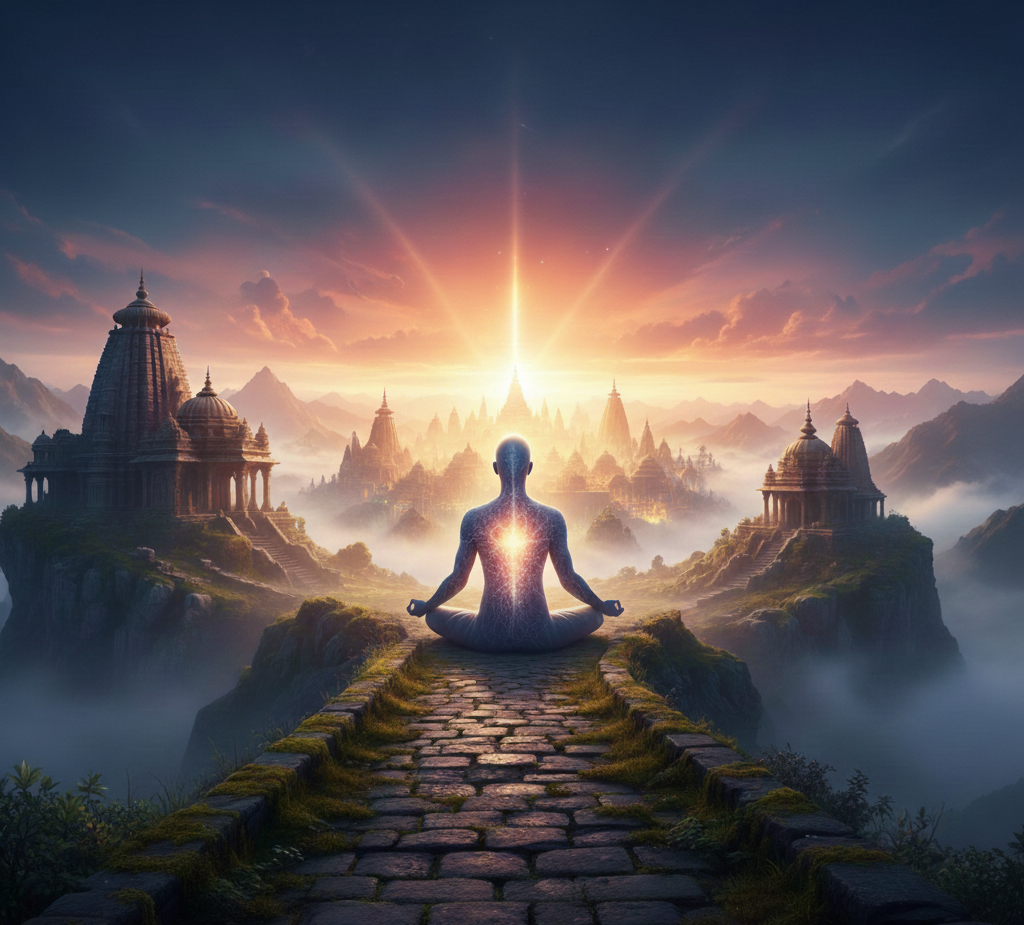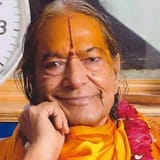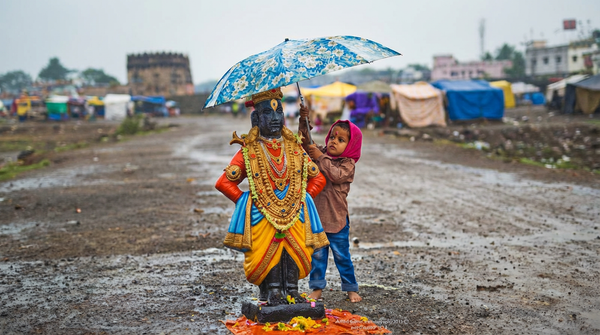Daily Devotion - Nov 23, 2025 (English)- Three Fortunes

Any soul in the world can attain three types of fortune -
- Human body - durlabhaṃ mānuṣaṃ janma prārthyate tridaśairapi - Even the celestial Gods desire this human body. We worship them, offer oblations in sacrificial rites, and build temples in their honour.
i) The bodies of celestial beings are divine, whereas ours are material.
ii) Their bodies do not excrete waste, sweat, or contain impurities. In fact, their bodies emit fragrance. In contrast, the human body often feels impure, even to us.
iii) Celestial beings walk without touching the ground - their feet remain a few inches above the earth.
Yet, it is surprising that these celestial beings desire the human body despite its impurities. Why? Because it is only through the gross human body that we can practice sadhana and attain liberation from the three bodies that have bound us for eternity.
We possess three bodies -
i) Gross Body (Sthūla Śarīra): Śarīra): When we dream, we temporarily let go of the gross body, and the subtle body takes over. The gross body remains lying on the bed while we wander all over and do many things in dreams.
ii) Subtle Body (Sūkṣma Śarīra): This body functions during dreams when the gross body is at rest.
iii) Causal Body (Kāraṇa Śarīra): During the great dissolution (Mahāpralaya), even the subtle body ceases to exist, leaving only the causal body, which is linked to karma.
As long as any of these three bodies exists, we remain bound and cannot attain liberation. Liberation from all three is only possible through the gross human body, which is why celestial gods desire this human form.
In their previous birth, these celestial beings performed numerous sacrificial rites, chantings, and austerities, but failed to practice devotion to God. As a result, they attained the heavenly abode for a limited time. When the fruits of their good deeds are exhausted, their stay in heaven ends.
God has granted us this human body out of compassion, which is extremely difficult to attain - even for celestial beings. kabahuṁka kari karunā nara dehī। deta īsa binu hetu sanehī॥.
- Meeting a genuine saint - The second fortune is encountering a genuine saint, which is not something everyone attains. And merely seeing a saint and shouting praises is not enough. Our mind and intellect must accept the saint's words, have faith in him, and surrender to him. This is the second fortune - durlabho mānuṣo deho dehināṃ kṣaṇabhaṅguraḥ. Tatrāpi durlabhaṃ manye vaikuṇṭhapriyadarśanam.
- This third thing is also rare - this is an inner longing to follow the instructions of the Guru.
However, even after attaining all these good fortunes, we make a critical mistake - Despite witnessing other people die in front of our eyes, we don't consider that we, too, may die at any moment. In the Mahabharata, during the Pandavas' exile, Yudhishthir engages in a dialogue with a Yaksh, who asks him sixty questions. The first question is:
Kim āścaryam?
What is the greatest wonder in the world?
- Our body contains two types of nails. We can trim one type casually, even while conversing, but if a live nail is injured, it causes immense pain.
- The hair on our head can be pulled, causing pain, but cutting it causes none. Such contradictions exist in the same body.
- A small seed grows into branches, leaves, flowers, and fruits - all opposite entities to the original seed.
- A relatively huge body forms from a microscopic drop of sperm and egg in the mother’s womb. This body contains millions of nerves; if even one malfunctions, it causes immense suffering.
All these contradictions exist in nature. Even the most advanced scientists in the world cannot create a single strand of hair or turn grey hair black. There are countless such wonders in the world. Reflecting on them could drive us mad. However, Yudhishthir said:
“No, I will tell you the greatest wonder.”
Ahaṇyahaṇi bhūtāni gacchantīha yamālayam. Śeṣāḥ sthiratvam icchanti kim āścaryam ataḥ param.
“People die every moment. Yet those who remain do not think that they could also die at any time. What could be a greater wonder?”
Despite seeing people die every day, we do not consider that we, too, will die. Regardless of our age, we believe that we have plenty of time left. We postpone everything, thinking, “I will do it tomorrow.” People say, “Let my son grow up and manage my household, then I will dedicate myself to devotion.”
This habit of procrastination has resulted in countless wasted lifetimes. So, we must not delay any longer. Who knows if we will live to see the next morning? People go to sleep perfectly healthy and peacefully after a hearty dinner, yet are found dead the next morning.
We have attained all the good fortune possible - a human body, guidance from a genuine teacher, and an intellect that understood through our Guru's teachings that this cycle of 84 lakh life forms will not end without attaining God. Yet we make the same mistake - We procrastinate in doing sadhana. We keep saying, “I will do it, I will do it. It must be done, but let me finish this one thing first.”
So, we have to eradicate the habit of procrastinating now.
Recommended books by Jagadguru Shri Kripalu Ji Maharaj related to this topic:





